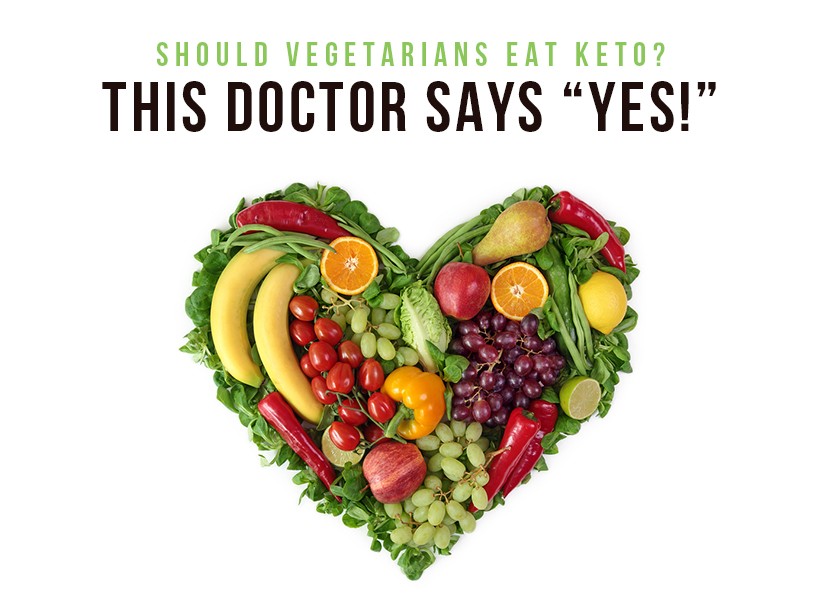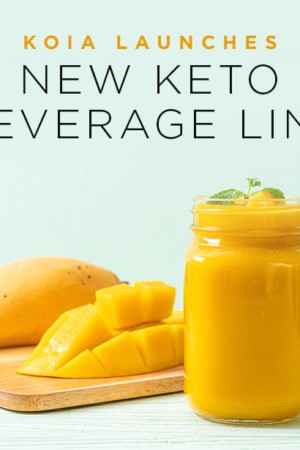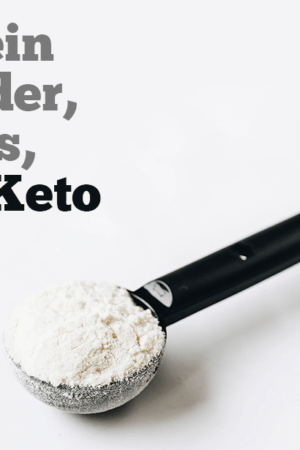The ketogenic diet is often hailed as a meat lover’s paradise. If you’ve picked up a keto cookbook or followed one of the most popular keto YouTube channels, there’s no doubt that you’ve already been bombarded with images of sizzling sausage and bacon cheeseburgers (without the bun, of course). While at the outset, the ketogenic lifestyle may seem like a no-vegetarians club, one doctor is trying to change how the world sees keto. Dr. Steve Phinney, the chief medical officer at Virta Health, recently revealed in an interview with POPSUGAR that his practice is now recommending keto to vegetarian patients for its disease-reducing effects.
The power of plants
The ketogenic diet has long been hailed by medical professionals for its benefits in reducing excess fat and high cholesterol levels. As these conditions become increasingly common in vegetarians, Dr. Phinney and the team at Virta Health treat patients battling type 2 diabetes with a vegetarian keto diet.
“A well-formulated ketogenic diet has been demonstrated to be very effective in reversing type 2 diabetes and metabolic syndrome,” Dr. Phinney confirmed.1 But diabetes isn’t the only condition that keto may be able to help with. At Virta Health, the ketogenic diet is also used to manage the symptoms of high blood pressure, high cholesterol, and fatty liver disease. Dr. Phinney told POPSUGAR that patients who follow a ketogenic diet see a significant reduction in the symptoms associated with these illnesses, and they often find themselves less dependent upon medication.
More than just meat
Though it may be a bit more difficult than living off a diet of bacon and eggs, Dr. Phinney says that it’s very possible for vegetarians to go keto. At his practice, Dr. Phinney recommends that vegetarians consume “four to five servings of non-starchy vegetables per day as part of a well-formulated ketogenic diet.”1 Spinach, kale, and peas are all protein-packed vegetables that vegetarians can incorporate into a low-carb diet. Vegetarians may actually be more prepared to reap the most benefits from the ketogenic diet, as they are already used to consuming plenty of healthy greens.
“While [eating four to five servings of vegetables a day] seems like a lot to some of our omnivore patients, it’s just a normal day for a vegetarian.”
Eating keto while on a vegetarian diet
Following a vegetarian diet doesn’t have to mean stuffing yourself with pasta and potatoes! The key to feeling satiated on a keto-vegetarian diet is the incorporation of plenty of healthy fat sources. Olive oil, avocado, and edamame are all fantastic ways to incorporate more fat into a vegetarian diet without introducing more carbohydrates. Whether you’re going keto in an effort to ward off hereditary diseases or you’re looking to finally shed those extra pounds, the creative chefs of the internet have invented a number of keto-approved vegetarian recipes that pack as much flavor as the original. However, all dieters (vegetarian, vegan, or otherwise) are advised to consult with their primary care physician before beginning any form of special diet.
NUTRITIONAL DISCLAIMER
The content on this website should not be taken as medical advice and you should ALWAYS consult with your doctor before starting any diet or exercise program. We provide nutritional data for our recipes as a courtesy to our readers. We use Total Keto Diet app software to calculate the nutrition and we remove fiber and sugar alcohols, like erythritol, from the total carbohydrate count to get to the net carb count, as they do not affect your blood glucose levels. You should independently calculate nutritional information on your own and not rely on our data. The website or content herein is not intended to cure, prevent, diagnose or treat any disease. This website shall not be liable for adverse reactions or any other outcome resulting from the use of recipes or recommendations on the Website or actions you take as a result. Any action you take is strictly at your own risk.
- This Grocery Store Team Lost Over 200 Pounds Using Keto - December 19, 2018
- Treating Diabetes with Weight Loss - December 12, 2018
- Ancient Nutrition Connects With Natural Partners - December 5, 2018




